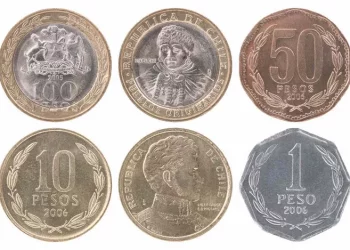Do you want to grow as a competent, independent trader?
Can you learn foreign exchange trading in the right way?
Or have you unknowingly joined the ranks of traders who are impatient and undetermined to learn?
So always looking for other traders to tell you where to enter or exit, or where to stop your losses?
If you want to become a profitable forex trader and are willing to face the challenges of forex trading on your own, against all odds, then this article is definitely worth reading.
At first, learning foreign exchange seems easy.
The excitement of having a computer at home and the prospect of a profit at the click of a buy/sell button urged traders to jump into currency trading.
In this information age, a wealth of trading learning resources can be found everywhere.
As a result, many traders think that armed with this knowledge, it will be easy to make money from trading.
But in fact, excessive information can have more negative effects.
It is especially difficult for novice traders to discern what is good and necessary, and to know what to do, no matter how much information they have read.
Traders learn the true meaning of trading only after numerous mistakes, but in this case, they have paid a high price.
Lack of confidence, lack of knowledge, inactivity, and taking advice from others who are also confused tend to leave traders in a long psychological struggle.
So don’t try to soak up all the learning resources available to you. Too much of a good thing will make trading even more confusing.
Finding a strategy that suits your personality and lifestyle is the way to go.
The three key elements of forex battlefield trading must be aligned: trading strategy, money management and your mindset.
This is like a tripod, without any of the elements to support the success of the deal.
But many novice traders have a hard time reconciling all three.
Almost every trader will hit a low point in his trading career before he truly understands the risks involved.
This frustrating experience isn’t all bad, at least it makes traders stop playing games and start getting serious about trading.
We’ve always said that the biggest challenge in the trading market comes from you.
The psychological and emotional challenges outweigh the trading.
People are used to complexity, and they bring that with them.
They buy expensive trading instruments, complex strategies, or sophisticated technical metrics, only to find that in the end, these methods don’t seem to work.
Complex strategies are always very demanding for traders. You have a lot of variables and data to interpret.
However, trading should not be so complicated, it is itself a simple operation, namely buying and selling and setting a stop loss.
Looking at this complicated chart, I have no idea what this trader is thinking. I can’t even find the quotes.
Too much complexity is not the right way to learn forex trading.
As a trader, your focus should be on the price itself, and a simple candle chart can convey a lot of valuable information.
Make your chart simpler and the market simple and clean in front of your eyes.
“Less is more” also applies to currency markets.
One of the reasons that one strategy at a time keeps many traders from succeeding is their inability to stick to one strategy.
This stems from traders’ impatience and unrealistic expectations.
Is there a “gold trading system” for foreign exchange?
One system fails to achieve its expected profitability within a short period of time, and the next system is immediately replaced.
Then you never know the advantages of each system, and you never know why you’re losing money.
Currency trading is not just about trading signals.
A system may send out many buy or sell signals within a few days, and even many 100% electronic trading systems simply send out signals blindly.
Finding the signal doesn’t matter, because you can’t trade every signal.
When learning to trade forex, one of the key skills is the ability to distinguish between good and bad trades.
No matter how good your trading system is, it’s not guaranteed to be profitable in a negative market environment.
Remember the saying, “The trend is your friend.”
Trading is not just about executing a buy or sell based on a signal on a candle chart.
Market analysis should precede signals as a guide to whether to trade.




























